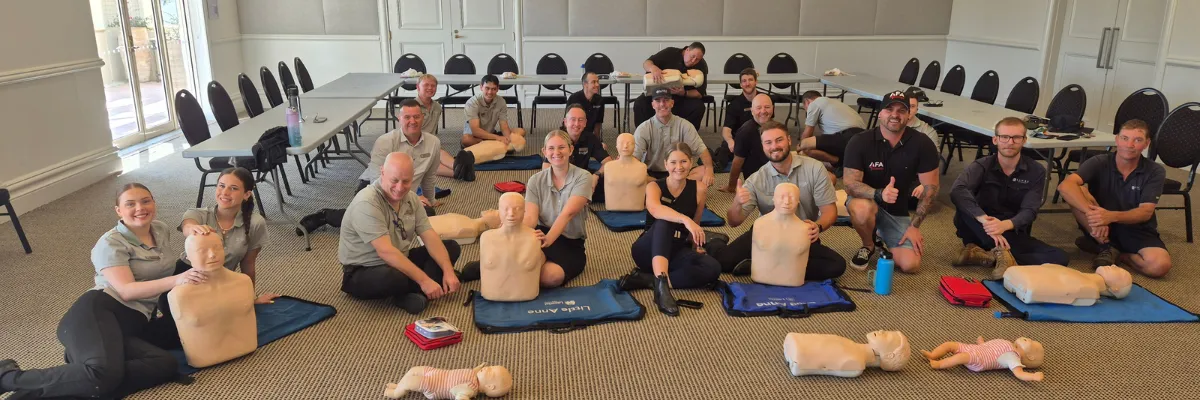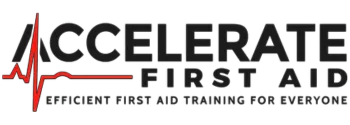
HLTAID015 Advanced Resuscitation Course for Aged Care Workers
When 87-year-old Margaret collapsed in the dining room at Sunset Manor, registered nurse Patricia knew this wasn't a typical fall. Margaret's irregular breathing and weak pulse signaled something far more serious than basic first aid could handle. In those critical moments, Patricia's HLTAID015 advanced resuscitation skills made the difference between life and death.
As an aged care professional, you understand that your residents face unique medical complexities that go way beyond basic CPR scenarios. When you're dealing with elderly patients who have multiple comorbidities and age-related physiological changes, standard first aid just doesn't cut it anymore. The HLTAID015 course for aged care workers isn't just another training requirement—it's your frontline defense against the cardiac events and medical emergencies that are increasingly common in Australia's aging population.
In this guide, you'll discover why HLTAID015 training has become non-negotiable for aged care settings, what specific skills you'll master, and how to choose the right training provider on the Gold Coast.
Why Aged Care Workers Need HLTAID015 Advanced Resuscitation Training
The Reality of Medical Emergencies in Aged Care
Residents in aged care have cardiac events at a rate that's 85% higher than the general population. These aren't straightforward emergencies - you're dealing with patients who have pacemakers, diabetes, COPD, and complex medication regimens that can all affect emergency response.
Basic CPR training teaches you to push hard and fast on a healthy adult's chest. But what happens when your patient has osteoporosis? What do you do when someone's on blood thinners and every compression could cause internal bleeding? These scenarios are exactly why HLTAID015 exists for aged care workers.
Beyond Basic CPR: Complex Scenarios You'll Face
HLTAID015 prepares you for the complicated realities of emergency care in aged populations. Your average aged care resident is on seven to twelve different medications. When someone goes into cardiac arrest, you need to know which drugs might affect your resuscitation efforts.
Most aged care facilities don't have advanced hospital monitoring equipment, but they do have automated external defibrillators, oxygen concentrators, and basic airway tools. HLTAID015 training teaches you how to use these effectively within your environment's limitations.
Staff with advanced resuscitation training can prioritize, delegate, and manage multiple critical situations simultaneously when emergencies happen - something basic first aid simply doesn't prepare you for.
Legal and Regulatory Requirements for Advanced Training
AHPRA requirements have become increasingly specific about emergency training in healthcare settings. For aged care facilities caring for high-acuity residents, basic first aid certification might not meet your duty of care obligations.
The Aged Care Quality and Safety Commission standards require residents to receive care that optimizes their health and wellbeing. In emergency situations, this means having staff who can provide appropriate intervention until medical help arrives. With paramedic response times of 15-20 minutes in some Gold Coast areas, that's a significant gap your staff need to fill.
Having HLTAID015-trained staff demonstrates you've gone beyond minimum requirements. Insurance companies also recognize this distinction, with some offering reduced premiums for facilities with advanced-trained clinical staff.

What You'll Learn in HLTAID015 Training for Aged Care Settings
Advanced Airway Management for Elderly Patients
When working with elderly residents, airway management requires different techniques than standard approaches. Age-related changes like decreased muscle tone, dental issues, and reduced gag reflexes mean standard techniques often need modification.
In HLTAID015 training, you'll learn how to manage airways in patients with dentures, limited neck mobility, or kyphosis - that forward spine curvature common in elderly patients. You'll practice positioning techniques and learn when basic interventions aren't working.
The training covers oxygen administration specific to aged care settings, including how to maximize oxygen concentrators and understand the risks of oxygen toxicity in COPD patients.
Medication Administration in Emergency Situations
HLTAID015 covers emergency medications you might need to administer during cardiac arrest or severe medical emergencies. More importantly, it teaches you how these medications interact with complex medication regimens that aged care residents are already on.
You'll learn about adrenaline administration, including contraindications and special considerations for elderly patients with cardiovascular disease. The training covers aspirin for suspected heart attacks and how to assess bleeding risk in residents on anticoagulants.
The course includes documentation requirements for emergency medication administration - something that's particularly important in aged care where decisions often need justification to doctors, families, or regulatory bodies.
Multi-Patient Incident Management
Basic first aid courses rarely address this, but it's a reality in aged care facilities. Infectious disease outbreaks, extreme weather events, or the domino effect of one emergency causing anxiety in other residents means you might deal with multiple emergencies simultaneously.
HLTAID015 training teaches you how to triage multiple patients and prioritize interventions. You'll learn to quickly assess which residents need immediate life-saving interventions versus those who can wait for paramedic arrival, and how to use other staff members effectively.
The course covers communication strategies for multi-patient scenarios and resource management during extended incidents - including backup plans when equipment is already in use.
Post-Resuscitation Care Protocols
Aged care differs significantly from other settings in post-resuscitation care. You might need to provide ongoing supportive care until transport arrives, or continue care if the resident or family has made decisions about hospital transfer.
The training covers monitoring protocols for post-cardiac arrest patients and family communication during and after resuscitation attempts. Many aged care residents have advance care directives, so you'll learn how to balance clinical interventions with resident and family preferences.
The course also addresses the psychological impact on staff and other residents after emergency incidents, including debriefing processes and when to seek additional support.
Choosing the Right HLTAID015 Provider on the Gold Coast
Trainer Qualifications That Matter
When looking for HLTAID015 training on the Gold Coast, not all providers are created equal. The biggest mistake facilities make is choosing training based purely on price without considering whether trainers understand aged care challenges.
Look for trainers with current clinical experience - instructors who've worked in ICU, emergency departments, or aged care facilities within recent years. They understand equipment limitations, staffing ratios, and complex medical histories that make aged care resuscitation challenging.
Ask about trainers' backgrounds and ongoing professional development. Healthcare changes rapidly, and advanced resuscitation guidelines are updated regularly. Don't be afraid to ask for references from other aged care facilities they've trained.
On-Site vs Off-Site Training Options
On-site training has real advantages for aged care facilities, particularly for equipment familiarity and scenario authenticity. When trainers come to your facility, they can use your actual defibrillator, oxygen systems, and emergency equipment. Your staff practice with the exact equipment they'll use in real emergencies.
On-site training also allows customized scenarios that reflect your facility's layout and patient population. Trainers can practice emergency response in your actual rooms and incorporate challenges like narrow hallways or limited space for CPR.
Off-site training centers often have more sophisticated manikins and simulation equipment. The key is finding a provider flexible enough to offer both options and help determine what works best for your situation.
Flexible Scheduling for Shift Workers
Your staff work around the clock, including weekends and holidays. You can't shut down operations to send everyone to a Tuesday morning training session.
Look for providers who offer evening and weekend training options. Some Gold Coast providers offer sessions specifically scheduled for shift workers - 6 PM starts for evening shift staff, or Saturday morning sessions for rotating rosters.
Consider providers who deliver training in small groups to minimize staffing impact. Rather than training 20 nurses at once, schedule four groups of five over consecutive weeks. Ask about makeup sessions for staff who miss training due to sick leave or emergency coverage.
Certification Validity and Recognition
Make sure your provider is a registered training organization (RTO) with ASQA. This means the certification meets national standards and will be recognized by regulatory bodies.
HLTAID015 certificates are valid for three years, but many aged care facilities require annual refresher training to maintain competency. Ask your provider about ongoing support and refresher options.
Consider providers who offer competency tracking systems - online portals where you can track staff certification status, renewal dates, and assessments. This is invaluable for clinical managers maintaining oversight of training compliance across large teams.

Taking the Next Step: Getting Your Team HLTAID015 Certified
The reality is that aged care environments are becoming more complex every year. Your residents are living longer with more serious medical conditions, and when emergencies happen, basic first aid just isn't enough anymore. HLTAID015 training gives your staff the advanced skills they need to respond confidently and effectively to the cardiac arrests, respiratory failures, and multi-system emergencies that are part of modern aged care.
Whether you're a clinical manager looking to upgrade your team's capabilities or a direct care nurse wanting to enhance your own skills, investing in HLTAID015 training isn't just about meeting compliance requirements - it's about being able to provide the level of emergency care that your residents deserve.
The difference between basic CPR and advanced resuscitation skills could literally be the difference between life and death for someone like Margaret at Sunset Manor. When those critical moments arise - and they will - you want to know that your staff have the knowledge, skills, and confidence to respond appropriately.
Don't wait until you're faced with an emergency that exposes gaps in your team's training. Take action now to ensure your aged care facility is prepared for whatever comes through your doors.
Ready to get your team HLTAID015 certified? Contact us today at 0434778243 | 04FIRSTAID to discuss your facility's specific training needs and schedule your advanced resuscitation training on the Gold Coast.


